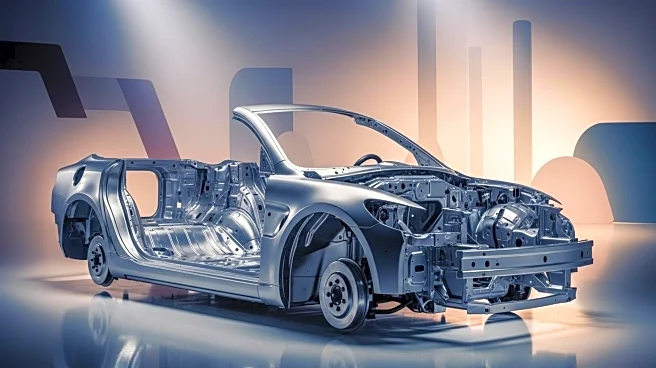What's Happening?
The Society of Motor Manufacturers and Traders (SMMT) reported a decline in UK vehicle production for August, marking the end of a two-month growth streak. The production fell by 18.2% to 38,693 units, the lowest since 1956, due to planned summer shutdowns and economic pressures. While car production for the UK market rose by 11.5%, exports fell by 14.2%, impacting overall output. Despite the decline, electrified vehicle production increased by 40.9%, accounting for nearly half of the total production. The industry faces challenges from slow economic growth, model transitions, and cost pressures.
Why It's Important?
The decline in vehicle production highlights the ongoing challenges faced by the UK automotive industry, including economic uncertainties and shifting market demands. The increase in electrified vehicle production suggests a growing focus on sustainable transportation solutions, which could drive future industry growth. The reliance on exports underscores the importance of international trade relations and the potential impact of global economic conditions on domestic production. The industry's resilience and adaptability will be crucial in navigating these challenges and maintaining its contribution to the UK economy.
What's Next?
The upcoming months will be critical for the UK automotive industry as it addresses the impact of recent cyberattacks and continues to adapt to economic pressures. The focus will likely be on enhancing production efficiency and exploring new markets to offset export declines. Stakeholders may advocate for supportive measures from the government to bolster industry growth and ensure long-term sustainability.
Beyond the Headlines
The shift towards electrified vehicles reflects broader environmental and regulatory trends, indicating a potential long-term transformation in the automotive industry. The industry's ability to innovate and adapt to changing consumer preferences and regulatory requirements will be key to its future success.









